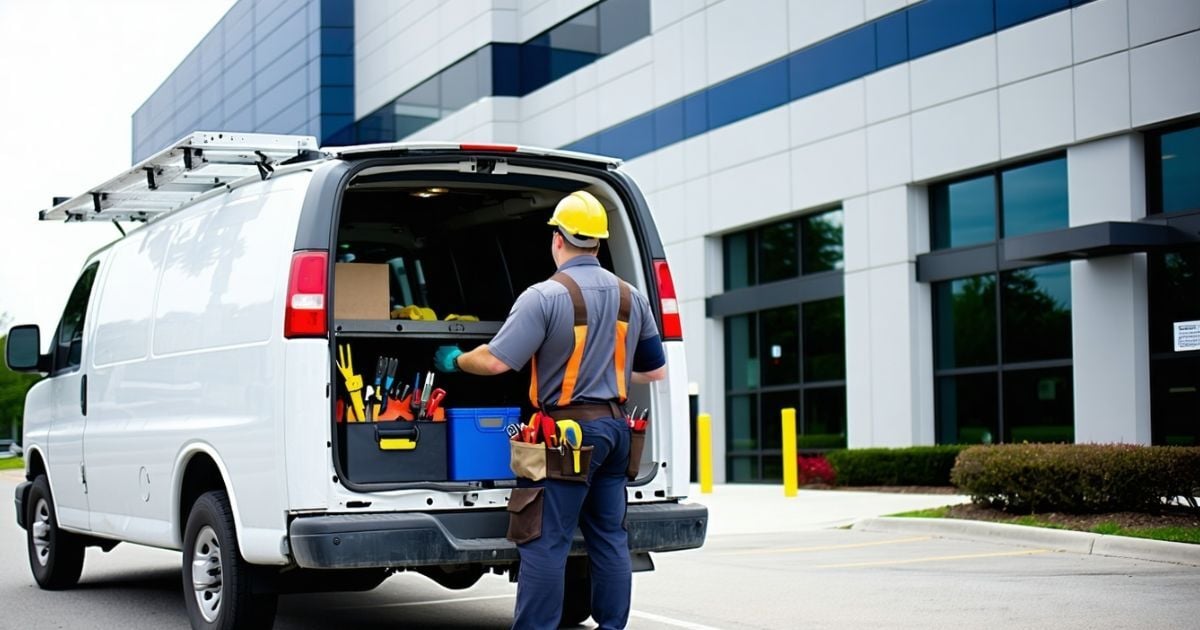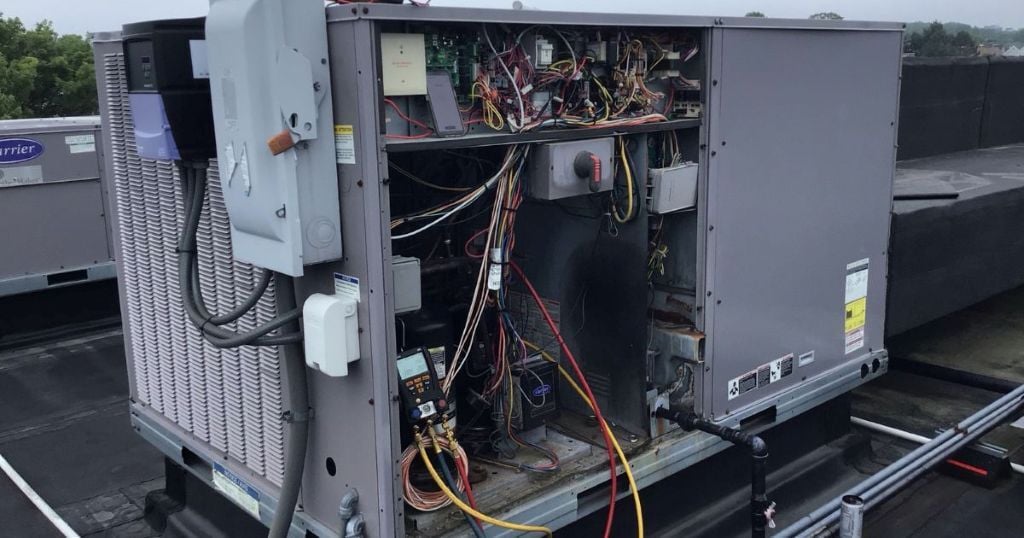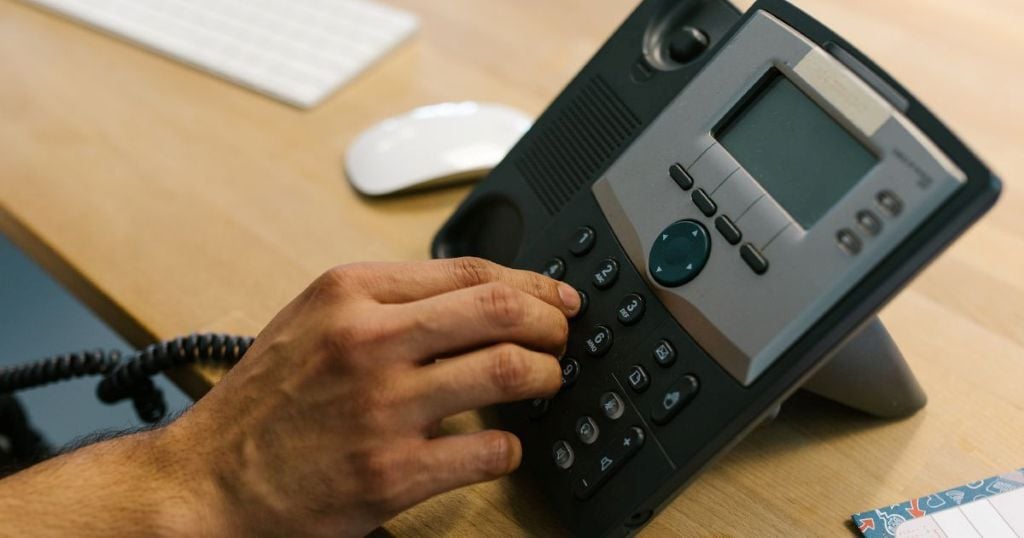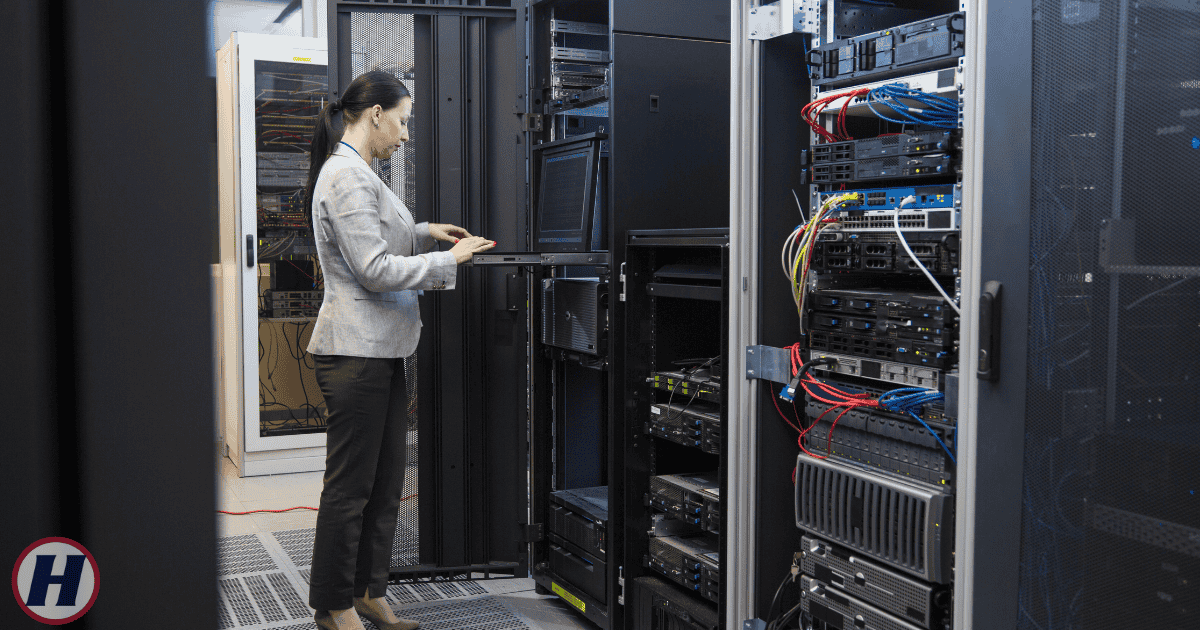How to Keep Your Business Open During HVAC Repairs or Failures
June 23rd, 2025
4 min read

If your commercial HVAC system fails suddenly, especially during peak seasons, you need emergency HVAC repair fast. Delays can cost your business time, money, and trust. Whether you manage an office building, hospital, school, or manufacturing plant, unplanned downtime can lead to lost productivity, tenant complaints, safety risks, and even damage to sensitive equipment or inventory.
At Harold Brothers Mechanical Contractors, we’ve supported hundreds of commercial facilities across New England through emergency repairs, full system overhauls, and preventative maintenance, without forcing them to shut down. We specialize in helping businesses stay operational through planned outages and HVAC failures.
In this guide, you’ll learn the 7 most effective strategies we use to keep facilities open and fully functional during HVAC disruptions.
1. Build an HVAC Backup Plan Before You Need It
Think of your HVAC system like a car. If your only car breaks down, you’re stuck. A backup plan is like having a second car ready to go. If one part of your system fails, the other steps in to keep things running. Without a plan, even small problems can shut down your whole building, especially in places like hospitals, labs, or data centers.
Having a backup isn’t a luxury—it’s a smart safety measure. Just like planes don’t fly with one engine and hospitals don’t rely on one power source, your building shouldn’t depend on just one HVAC unit.
Pro Tips:
- Install backup systems like spot coolers, extra boilers, or portable AC units. These can be turned on fast if the main system fails.
- Use N+1 redundancy, which means having one more unit than you normally need. If something breaks, the extra one takes over.
- Identify your most important areas, like server rooms, operating rooms, or spaces that need steady temperatures. These should have backup systems in place.
- Work with your HVAC contractor to create a backup plan that shows where your extra systems are and what to do in an emergency.
- Test your backups regularly. A backup only works if it’s ready and working when you need it.
When every degree counts, a backup plan can be the difference between staying open and shutting down.
2. Schedule HVAC Work During Low-Impact Times
Timing matters. You don’t want maintenance to interrupt your busiest hours. By planning work when fewer people are in the building, you can avoid problems and complaints.
To Limit Disruptions:
- Schedule maintenance early in the morning, at night, or on weekends and holidays when fewer people are around.
- Use data or feedback to find slow periods like school breaks or shutdowns in manufacturing.
- If your building runs all day and night, rotate work by area, so most of the building stays open.
- Talk to department heads or tenants to agree on the best time for the work.
- Be ready to change plans quickly if an emergency happens elsewhere.
If HVAC work must happen during open hours, use temporary cooling or heating units to keep people comfortable.
Smart scheduling is like traffic lights at a busy intersection. When it’s done right, everything flows smoothly, and people stay safe and happy. It’s not just about timing—it protects your building, saves money, and keeps people comfortable.
3. Use Temporary HVAC Equipment When Needed
If a major system breaks or needs to be replaced, portable HVAC units can keep your building comfortable. These are very helpful during emergencies, big upgrades, or times of high demand.
Here’s How To Be Ready:
- Rent spot coolers, portable heat pumps, or temporary chillers ahead of time. Don’t wait until something breaks. Keep a list of trusted vendors who have the equipment. Learn the pros and cons in this portable HVAC rental guide.
- Plan for power and ductwork needs early. Not all buildings can handle extra equipment easily, so check this with your contractor.
- Work with a contractor who can act fast. You need someone who knows how to get backup systems in quickly and set them up without slowing things down.
Temporary HVAC systems are often used alongside emergency HVAC repair efforts, giving technicians time to diagnose and restore your main system while maintaining indoor comfort.
4. Communicate With Tenants and Staff Early
Don’t surprise people with HVAC work. Good communication keeps everyone calm and avoids complaints.
Here’s How To Keep People Informed:
- Share a schedule of when and where work is happening.
- Explain how you’ll keep the building comfortable during construction.
- Give people a contact person they can reach out to with questions or concerns.
- Use emails, signs, or tenant portals to make sure everyone gets the message.
People handle changes better when they know what’s happening and why. It also makes the job easier for your team—fewer surprises, fewer issues.
5. Choose an HVAC Contractor Who Knows Critical Facilities
Buildings like hospitals, schools, and data centers need special care. HVAC problems in these places can cause serious issues.
The wrong contractor can delay the work, disrupt people, or even cause safety risks. You need someone with the right experience.
Look For A Contractor Who:
- Knows how to do the work without shutting down the whole building.
- Has experience using portable HVAC systems and can set them up fast.
- Can solve problems quickly, even in high-pressure environments where there’s no room for error.
At Harold Brothers, we’ve helped hospitals, schools, and labs stay open while doing major HVAC work. That kind of experience is a must for critical facilities.
6. Use Zoning and Smart Controls to Stay Comfortable
Modern HVAC systems can be split into zones. That means you can turn off just one area while keeping the rest of the building comfortable.
Smart Systems Give You Control:
- Shut down only the areas under repair while the rest stay running.
- Use thermostats and smart tools to manage temperature by room or section.
- Track system performance in real time to catch issues early and adjust quickly.
Want to know what this level of control really costs? Our breakdown on The Cost of a Commercial Building Management System explains what to expect in terms of features, savings, and long-term ROI.
7. Prevent Breakdowns With Regular Maintenance
The best way to stop costly HVAC problems is to prevent them before they start. Waiting until something breaks often costs more money and causes more stress.
Here’s How To Stay Ahead:
- Schedule seasonal tune-ups and system checks before heating or cooling seasons.
- Change filters, check refrigerant, and clean coils regularly. These small tasks help your system work better and last longer.
- Use tools that monitor your system’s health and alert you when something is wrong.
- Keep a record of all repairs and maintenance, so you can track patterns and respond faster.
Think of it like getting an oil change for your car. It may seem small, but it keeps the engine running. The same goes for HVAC maintenance—it protects your building and helps you avoid emergencies.
Don’t Let HVAC Problems Force a Shutdown
At the end of the day, unexpected HVAC failures or major system overhauls don’t have to shut your doors. You now have a clear plan to maintain operations, protect your occupants, and avoid costly downtime.
Too often, businesses scramble during a failure, losing time, productivity, and trust. But with the right preparation, redundancy planning, and communication, you can stay open, safe, and compliant.
Your next step? Make sure you’re stocked with the right parts before you need them. Read our guide to HVAC Parts Massachusetts Businesses Should Stock so you can respond faster when something goes wrong.
At Harold Brothers Mechanical Contractors, we’ve helped hundreds of commercial buildings navigate these exact challenges—without closing their doors. We’re ready to help you do the same.
Mike MacDonald is an HVAC estimator for Harold Bros Mechanical Contractors Inc, a role that he has held for 8 years. Beginning as an assistant estimator, he worked his way up to Senior HVAC estimator where he provides HBMI’s clients with accurate estimates of material and labor to ensure that HVAC projects arrive on time and under budget. In addition, Mike is responsible for ensuring that Harold Bros maintains their status as a public bidder in the state of MA by spearheading the yearly DCAMM renewal and keeping the Update Statement current. Mike is also a MA Journeyman Plumber, earning his license in the fall of 2023. Mike is an alumnus of the University of Massachusetts, Amherst and likes to spend his free time on the cape playing Golf.
Topics:






















